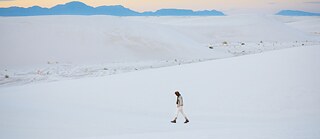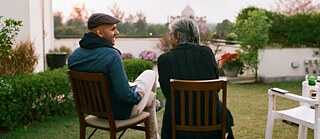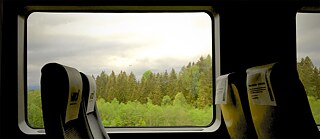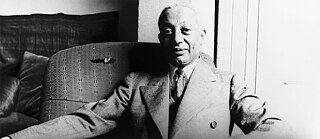Der Winter leuchtet
Winterreise
Im gleißenden Licht von Dubais Wüstensonne denkt Bilal Qureshi über Franz Schuberts Liederzyklus „Winterreise“ nach. Die Lieder erzählen von den Eindrücken eines jungen Mannes, der durch eine Winterlandschaft wandert. Für Bilal Qureshi bedeuten sie eine Verbindung zu Stille und Zurückgezogenheit der Wintermonate im ewigen Sommer der Wüste.
Diese Folge anhören: Apple Music | Spotify | Download
Diese Folge stammt von Bilal Qureshi, Radiojournalist und Autor. Seine Beiträge sind bei National Public Radio (NPR) zu hören, seine Texte erscheinen unter anderem in „The New York Times“, „The Washington Post“, „Newsweek“ und „Film Quarterly“. 2011 war er als Robert-Bosch-Stipendiat für ein Jahr in Berlin und München. In der vorliegenden Folge spricht Bilal Qureshi mit Musiker*innen, Autor*innen und mit seinen Freun*innen über das Erleben des Winters. Die Lieder „Gute Nacht“ und „Der Wegweiser“ sind Kai Schumachers und Gisbert zu Knyphausens Album „Lass irre Hunde heulen“ entnommen. Die klassischen Aufnahmen von Franz Schuberts „Winterreise“ stammen aus dem Isabella Stewart Gardner Museum in Boston und sind unter einer Creative Commons Lizenz veröffentlicht. Außer dieser Folge hat Bilal Qureshi die Episoden „Radio Wanderlust“, „In Friendship“, „Quietude — In Search of Radio Silence“ und „Black Art, Berlin Stories — Looking for Alain Locke“ produziert. „Quietude“ und „In Friendship“ sind auch in einer deutschen Sprachfassung verfügbar. Das Porträt von Bilal Qureshi hat Matthew Asada an einem Wintertag in Dubai aufgenommen.
Transkript
Bilal Qureshi: For the past three years, I’ve lived in a desert city without winters. It’s always summer in Dubai — which means a constant stream of tourists, many fleeing from harsh northern winters for the endless sun.
Katherine May: We see summer as the months when we live and winter as almost the months we ignore.
Bilal Qureshi: In her recent book “Wintering,” the British journalist Katherine May says we have a troubled emotional relationship with winter.
Katherine May: It’s almost like we’re bracketing three-quarters of the year sometimes, and there’s still loads of living that gets done in those winter months, but we tend to see it as like almost a compromise.
[SOUND OF DOOR OPENING AND TERRACE WINDS]
Bilal Qureshi: This year marks my third — and last — winter in Dubai. But at the beginning of another sunny January in the desert, one day I noticed an unseasonable shift in the weather. Clouds arrived, the winds began to howl, and temperatures fell to unseasonable lows.
[WINDS]
Bilal Qureshi: The plants on my terrace lost their leaves. It was a winter that lasted only a week — and yet, I found myself fully slipping back into a wintry state of mind, all made possible with the assistance of a soundtrack album. [RECORD PLAYER HISSES AND “WINTERREISE” OPENING MUSIC PLAYS] Turns out, I was longing for winter and not just any winter but for a German winter as dark and lonely as the most famous song cycle in Western classical music. [SINGING] Franz Schubert’s “Winterreise,” “Winter’s Journey,” published in 1828.
Beena Kamlani: You can feel the crunch of winter throughout this piece. And it’s crunching both the heart, and it’s crunching his body.
Bilal Qureshi: Beena Kamlani is a novelist. She’s also a Schubert aficionado.
Beena Kamlani: When you think of the story of these 24 poems that were written by Wilhelm Müller that Schubert set to music, winter cycles are within the soul. The journey within parallels the journey through the physical world, going from despair to reflection, to the peculiar comfort that only winter can bring.
[SINGING CONTINUES]
Bilal Qureshi: I first learned about Franz Schubert’s winter concept album a decade ago while living in Munich. Its lyrics of a heartbroken man’s journey across a frozen winter landscape were becoming all too familiar. I grew up in much warmer climates — in South Asia and the American South. The northern winter challenged me physically and emotionally. Listening to “Winterreise” even now allows any listener to slip back into that particular state and place of darkness, echoed by Schubert’s extraordinarily spare and precise arrangements for piano and voice. So, I decided to revisit “Winterreise” by first rewinding to my own winter’s journey through Germany. I began by calling two American friends who still live there. Both are classical singers. And after almost a decade, both have become intimately familiar with German winter.
Lydia Brotherton: For me, more than a weather, German winter is a mood, and it’s not a good one ... [LAUGHS]
Douglas Williams: Every time I say, it’s January, I’m like looking for some motivation, I’m looking for some new energy. People just say, it’s January in Berlin, just relax. Like take it easy. Don’t have any expectation that you will feel inspired in these weeks.
Bilal Qureshi: That’s Berlin-based opera singer Douglas Williams — and this is Lydia Brotherton, who I met a decade ago while living in Germany.
Lydia Brotherton: I’m in Berlin, it’s [LAUGHS] January 2022. I have my newborn baby Jakob here. And yeah, thinking about Berlin winters, German winters.
Bilal Qureshi: Well, you said the winter in Germany is a mood. What is the mood?
Lydia Brotherton: I think the mood is a, you know, kind of sourness, maybe, and grumpy. [LAUGHS] I think that’s the mood, and you see it set in on people’s faces outside, and then, you realize in the springtime when things get beautiful and sunny and all this stuff, then you notice that the bus driver didn’t shoot me a death stare or you know that it’s ... People are smiling on the street all of a sudden. It’s like the whole ambiance of the city becomes much more friendly. I mean, I think, you know, it’s also, in classical music, there’s the whole seasonal cycle.
[JAKOB SNEEZES]
Bilal Qureshi: And as it became obvious during my Zoom call with Lydia about the music of German winter, the season’s frigid temperatures can also create other, more human sounds.
[MORE SNEEZES]
Lydia Brotherton: We have a seasonal cold over here. Oy, oy oy.
Bilal Qureshi: A winter cold ... [LAUGHS]
Lydia Brotherton: Should I start again? So, there’s this whole cycle of works that come around, and you can mark the seasons by them. And in my music classes, for example, you know, we have lots of songs that we could theme a whole class around snow and winter and walking through the woods in a sort of barren landscape.
[PIANO OPENS WITH “DER LINDENBAUM”]
Bilal Qureshi: The most famous of those cycles is “Winterreise.” Franz Schubert finished composing the 24-song cycle in Vienna shortly before his death at just 31. It has endured for almost 200 years since as the classic of winter melancholy. [MUSIC] A collection of songs for the piano and voice as spare and as heartbreaking as the journey of the unnamed heartbroken man that it follows. The singer Douglas Williams tells me that even in his Berlin neighborhood, Schubert is always in season.
Douglas Williams: Yes, I just saw a poster that a little church down the street, someone is doing it there. So, it does get done very often, but it’s a depressing piece. It’s kind of a downer, so you really have to [SIGHS] you have to be willing to go there, I think, and take the audience with you, and the audience has to be willing to go. It’s heartbreaking.
[SINGING IN GERMAN]
Douglas Williams: [READING LYRICS IN ENGLISH] I came a stranger, I depart a stranger ...
May was good to me with many a garland of flowers.
The girl she talked of love, the mother even of marriage.
Now, the world is so gloomy, the way is shrouded in snow.
[“GUTE NACHT” BY KAI SCHUMACHER AND GISBERT ZU KNYPHAUSEN PLAYS]
Bilal Qureshi: The version you’re hearing now is a new interpretation — a reimagining of Schubert’s songs for indie, younger audiences — a collaboration between the acclaimed singer-songwriter Gisbert zu Knyphausen and pianist Kai Schumacher.
Gisbert zu Knyphausen: The whole point was to bring the songs 200 years forward in time and to see how people react on a modern version of a Schubert song.
Kai Schumacher: The lyrics are talking about the same things like maybe in 95 percent of the lyrics in popular music; it’s about love and tragedy and death. It’s very similar to what singer-songwriters sing in our days.
[MUSIC CONTINUES]
Gisbert zu Knyphausen: The name of the album is called “Lass irre Hunde heulen,” which is a sentence out of the song “Gute Nacht.”’
Bilal Qureshi: Is it “Let Your Dogs Howl,” is that what it means?
Gisbert zu Knyphausen: “Let the Crazy Dogs Howl,” yeah.
Kai Schumacher: It’s like our version of “Who Let the Dogs Out.” [LAUGHS]
[MUSIC CONTINUES]
Bilal Qureshi: I asked Gisbert zu Knyphausen and Kai Schumacher if they imagine winter landscapes when they perform this music. Is “Winterreise” an album about traveling?
Gisbert zu Knyphausen: To me, it’s more of an internal traveling and a state in which you sometimes are when you’re kind of seeking loneliness, but you don’t even know why — just because you can’t really cope with society at that moment, maybe. But most of the time, for me, it’s an emotional journey, yeah. How’s it for you, Kai?
Kai Schumacher: [LAUGHS] Yeah, definitely the same. Yeah, for me, it’s definitely an intimate, internal symbol.
[MUSIC CONCLUDES]
Bilal Qureshi: The writer and editor Beena Kamlani is a fan of “Winterreise.” She lives in New York City. She says she’s a great admirer of both the music and the literature of “Winterreise.”
Beena Kamlani: The story, in a nutshell, is that a man has been rejected by the woman he loves and hoped to marry. He’s in this idyllic town, and he must flee. He must leave this place. Pain, loss, and longing, which are winter’s feelings, fill him. Sorrow, memories, bitterness, the world is fickle. Love changes all the time. These crippling feelings of rejection just fill him. Life is unbearable. [SINGING] And these emotions are simple yet powerful. They speak of pain through the prism of winter and winter’s landscape. And like every winter journey, whether of the heart or of the body, pain gives way in the end to reflection, to comfort in nature, to the beauty of the natural world.
[“DER LINDENBAUM” PLAYS]
Douglas Williams: I’m reminded of how this idea of fate is present in so much writing about winter actually, that it is an experience that one cannot avoid. And therefore, as is the case in the narrator in “Winterreise,” that you have to go into it. It’s a journey that you are destined to pass through, so there is almost like a resignation to the fate aspect of that.
[SINGING]
Bilal Qureshi: Again, opera singer Douglas Williams.
Douglas Williams: When the leaves are off the trees, when the green is gone, when the spectrum of colors is gone, there’s also a feeling of facing life in a kind of naked and reduced way, and the metaphor is more than a metaphor. It’s real for me in that there’s a feeling of aloneness where you confront yourself in this empty winter landscape.
[MUSIC]
Bilal Qureshi: Confronting oneself, being forced into solitude, has been a global experience these past few years. Even in a city like Dubai without winters, this has been a prolonged and unexpected season of solitude. As I began to feel clouds descend again on my own moods this January, I heard a radio program about a recent book about winter.
Katherine May: Hi, my name is Katherine May, and I’m the author of “Wintering: The Power of Rest and Retreat in Difficult Times,” which came out in 2020.
Bilal Qureshi: When in 2020 exactly was the book published?
Katherine May: At the very end of November 2020 in the U.S., but in the U.K., funnily enough, it came out, I’d say, about three weeks before we went into the very first lockdown. So, I had three weeks of talking about the book in terms that weren’t pandemic related, and then after that, everyone’s really associated it very strongly with that mass wintering that we’ve all been going through.
Bilal Qureshi: When you set out to write out your book, which of course is both personal but then it becomes this cultural history as well, it sort of works on many layers of reflecting on winter — did you seek out kind of those cultures and places and where winter is indeed kind of confronted and dealt with and absorbed? You know, I ask that too because we all do know of Christmas season and the holiday season and, at least in America, Mariah Carey plays everywhere, and everyone has rom-coms that sort of get them excited for cozy nights and even the idea of ‘hygge,’ right? Like hygge with the sort of Scandinavian idea of coziness and warm blankets and all of that. But yet, I don’t think that these are ways of thinking about winter that prepare oneself for the desolation of it and the withdrawal of it. So, how did you set out to look at alternate ways of thinking about winter from these festive ways of thinking about it?
Katherine May: Yeah, I went out looking for people who were intimate with winter, really. So, I talked to people from Norway, Sweden, Finland, Iceland, and in the book, I visit Iceland and Norway myself, and I kind of kept asking people who got snowed in, really. I was really interested in this idea that there would be these periods of time when you literally were frozen in that you couldn’t really do anything that was like normal life. And I kept asking them, you know, how do you cope with that? The answers I got weren’t really about the time in winter itself, which actually people often saw as quite a cozy time, although, you know, frustrating, but they had strategies to get through that. But they talked to me a lot more about the preparations they made ready for that winter. They knew it was coming. They didn’t try to deny it, and so, you know, they did things like preserving foods like making sure their house was in order, which meant that during that winter season when everything was so kind of compressed and difficult, they could deliberately have a good time and really make space for celebration of what winter gave them, and they just had a very different understanding of it to us. They respected it more because they completely understood their own limits within that, and they were full of all these kind of warning stories about people who had ignored that it was winter, and you know, crashed their car or got frozen out in the cold. So, they took it incredibly seriously but also made the best of it. And I ... That balance is quite a difficult conversation to have in our society at the moment. It feels like we’re either allowed to be happy in a kind of monotonous way or we’re allowed to be very somber about danger. And for me, I feel like you find the sort of truth of human life in that mixture of seriousness and levity all wrapped in together. There was a sort of compact with the truth ... [LAUGHS] The truth of what life is like amongst those people, for me.
Bilal Qureshi: Well, you know what interested me about, you know, this early 19th-century piece of music by Schubert ... great masterpiece of winter classical music is that it’s written in the early 19th century, and it is, you know, very much blending the season with a personal loss and with someone who’s cast out and sort of begins with this language of, you know: I came a stranger, and I wandered away a stranger. And so even in your book, you talk about, it’s the season of feeling like an outsider, both outside of the self and outside of time and outside of nature. So, this notion of feeling kind of cast out, and I find that that really stayed with me because I suppose somehow we’re very uncomfortable in our contemporary time to be outside of things, right? Everybody wants to be in the conversation, in the discourse, in the moment, in time.
Katherine May: Yeah, I mean, we’re the era of ‘FOMO,’ aren’t we? ‘Fear of missing out,’ and that seems to be such a compelling emotion for us at the moment, and I think that’s perhaps because we’re more aware than ever of just how much is going on in the world, and that somehow managed to make all of us feel a little bit like outsiders, and that’s a profoundly winter-y experience. That realization that we’re not at the center of the universe, that we’re not as important to the rest of the world as we maybe grew up thinking we were.
Bilal Qureshi: Well, Katherine, thank you so much for your time and for talking to me about your book “Wintering.” Katherine May is the author of “Wintering: The Power of Rest and Retreat in Difficult Times.”
Katherine May: Thank you so much. I loved talking about that.
[MUSIC]
Bilal Qureshi: Ten years ago while living in Munich, I fell into my own wintering — an experience for which I didn’t, at the time, have the language or the maturity. An old college friend happened to be living in Munich at the same time. Her name is Lisa Overbey.
Lisa Overbey: Now that you mention it, I can remember ... [LAUGHS]
Bilal Qureshi: Lisa quite literally took in me in from the cold. I remember dragging my feet across the icy sidewalk to her home for my 29th birthday, when she cooked a meal for me and a friend. I was unhappy in my failing internship in Germany, unhappy with the city, unable to speak the language, and felt like I was just falling into an endless darkness. I knew I wasn’t myself.
Lisa Overbey: No ... I mean, I remember that time and it was so ... It was ... You were a really different Bilal than the Bilal I am used to spending time with. So, it was clear that you were ... that it was a hard time for you, that you were really struggling. And I mean, what year was that?
Bilal Qureshi: It was 2012. It was exactly ten years ago.
Lisa Overbey: So crazy ... So, you were ... I think I’d only gone through, maybe that was like my third winter. I had only had a few ahead of you winters under my belt, so I could deal with it a little bit more. At least, just knew what it was, and I don’t know ... When I think on it, I can remember just really wanting to take care of my friend and feeling really sorry for what you were going through, so I remember we had some nice dinners. I tried to make it cozy for you ... I even broke out the Virginia wine, [LAUGHS] you know.
Bilal Qureshi: Yes, you had Virginia wines out! [LAUGHS]
Bilal Qureshi: Douglas Williams is another American transplant in Germany, and he says it helps that there is a café culture of wintering in Germany that extends beyond Christmas decorations and Christmas soundtracks.
Douglas Williams: I mean, they do things very well here in winter to kind of celebrate the darkness, I would say so. Like bars are full of candlelight. You’d never see that in the U.S. anywhere. And hot beverages also, Glühwein, Heiße Zitrone ...
Bilal Qureshi: But good wine and candlelight are outward means of wintering. They are just expressions of a deeper culture and maybe even a deeper capability for winters, Douglas adds.
Douglas Williams: Broad statement, but I think in the German psyche, if I may say so, there is more of a place to sit with pain and to sit with quietude or discomfort and let that just be there for a bit. Whereas in America, yeah, the winter is really about, you escape to someplace warmer or you have a blast of a weekend on the ski slopes. I mean, I suppose they do that here too in Europe ... But maybe, there’s more of a place in the German psyche for going inward.
Hani Yousuf: Bilal I think the cultures that we come from also tend to avoid loneliness.
Bilal Qureshi: This is my friend Hani Yousuf. She’s a writer from Pakistan who I met during my German winter a decade ago. We used to joke at length at the time about how our Pakistani heritage — and our clothes — hadn’t prepared us for the isolation of those winters.
Hani Yousuf: And I think for me, and forgive me for presuming, but I think also for you, one of our first confrontations with ourselves and with the necessity of being with ourselves was in Germany because it is a culture that values loneliness. Desolation, isolation also serves as a catalyst for creative work. And I think for me, the first confrontations with those were in Germany when I was living there, and so, that kind of journey inward, that Winterreise to the core of yourself, essentially, is also an important aspect of any artist’s life.
Bilal Qureshi: And have you imported in some of that culture of the German desolation to your life in Pakistan now?
Hani Yousuf: I have. I have generally imported it into my life no matter where I am.
[MUSIC]
Bilal Qureshi: The version of “Winterreise” you’re hearing again is this modern interpretation by composer Kai Schumacher and the singer-songwriter Gisbert zu Knyphausen.
Gisbert zu Knyphausen: Singing these old songs and this old melancholy and this old seriousness, the old sadness, it just makes me very happy. In the end of the evening, I’m just very, I feel so cleansed and happy [LAUGHS] because I could get rid of ... It’s some kind of cathartic moment that we arrive in that shows, I guess. It’s a similar spirit in some of my songs that I’m trying to cope with my own German seriousness and sadness and whatever and hardship of life, and you can put that into beautiful melodies. And then, that’s a wonderful thing.
Bilal Qureshi: The writer Katherine May says there’s a forgotten word for that feeling.
Katherine May: ... which is ‘apricity.’ Have you ever come across that word?
Bilal Qureshi: I have not, no.
Katherine May: It’s the specific warmth of the winter sun. Isn’t that lovely? Apricity.
Bilal Qureshi: Mm-hmm.
[MUSIC]
Bilal Qureshi: That is ultimately the message of Katherine May’s book “Wintering” — that in winter’s darkness, there can still be light, if we choose to see it. Beauty and catharsis in Schubert’s music of winter, if we choose to hear it — even if we live outside winter. I’m Bilal Qureshi. [MUSIC] This documentary was edited and produced by Oliver Brod of StudioBrod in Berlin, Germany. The album “Lass irre Hunde heulen” is by Gisbert zu Knyphausen and Kai Schumacher. The classical interpretation of Franz Schubert’s “Winterreise” you heard is by Jeremy Denk and Randall Scarlata. It was recorded live at the Isabelle Stewart Gardner Museum in Boston and was released under a Creative Commons License.







